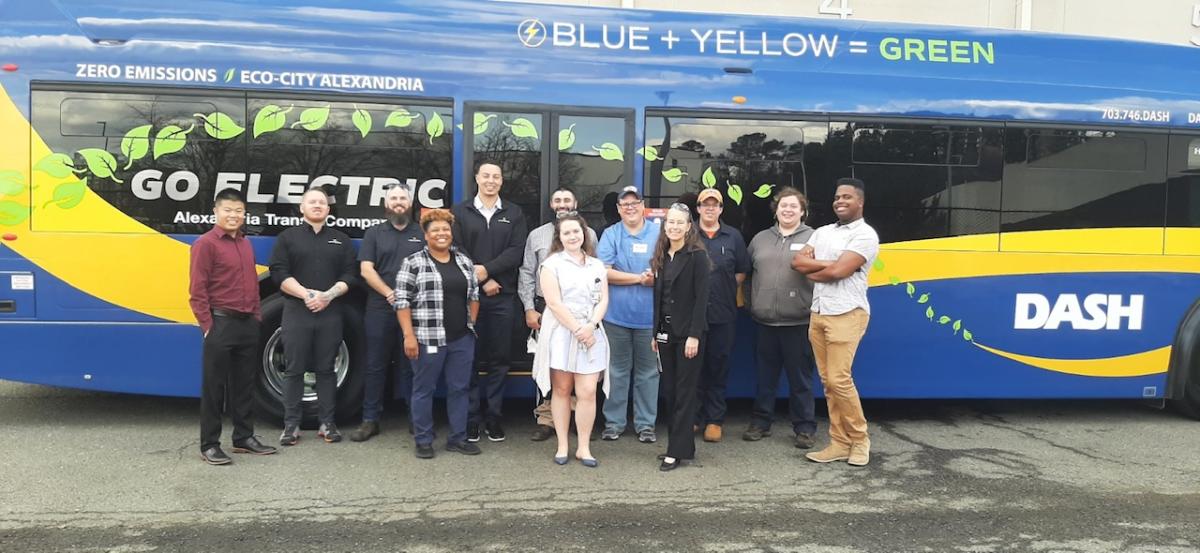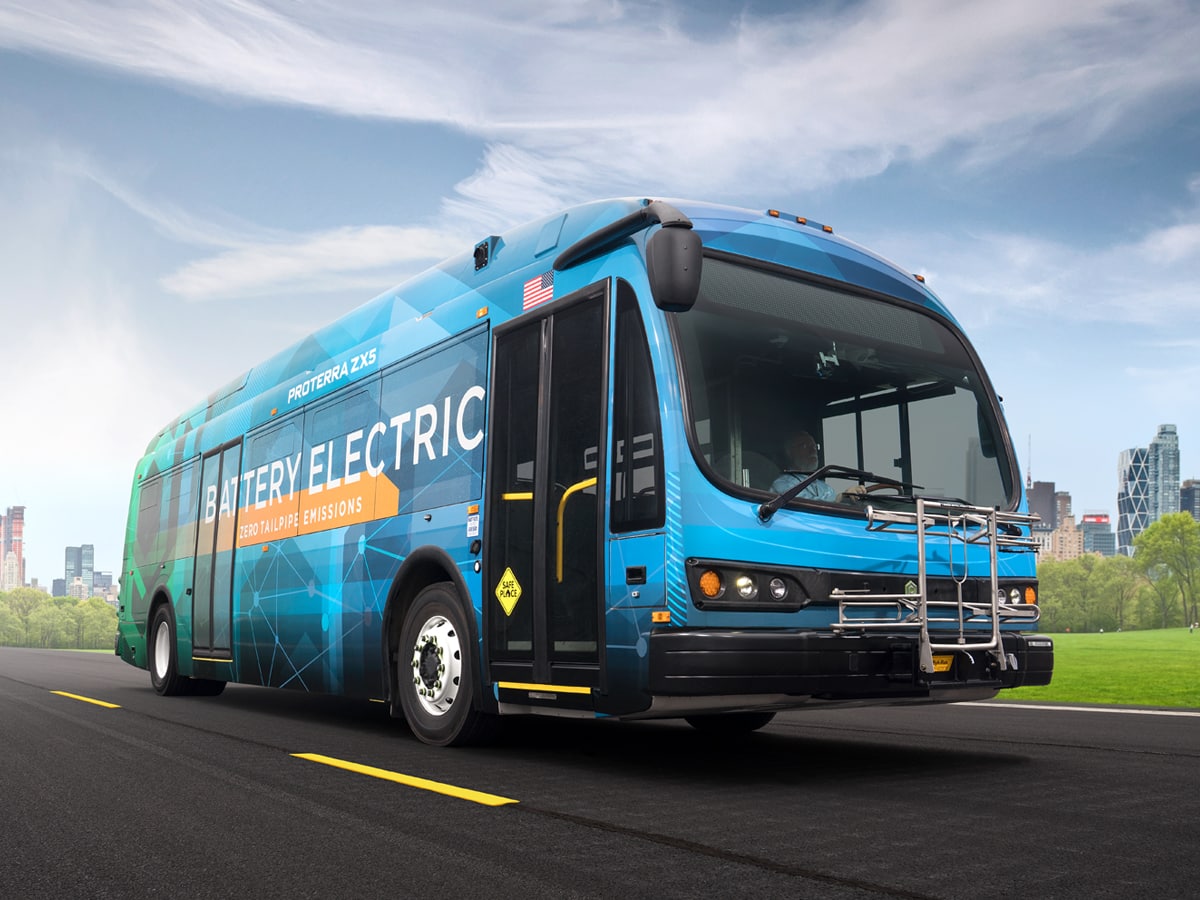Frequently Asked Questions (FAQ)
What kind of buses is the University purchasing and when will they arrive?
UVA has ordered four 35-foot, zero-emission, battery electric buses from Proterra, model ZX5+ (450kWh). Delivery is expected in summer or fall 2023.
How much diesel fuel will be averted, and what are the greenhouse gas emissions associated with that?
About 10,000 gallons of diesel per bus per year will be avoided, cutting tailpipe emissions by about 400 metric tons annually for the four buses – roughly equivalent to the emissions of 50 average homes. (See Proterra’s fuel economy page.)
Where will they get their electricity?
The UVA bus facility at 1101 Millmont will be retrofitted with three charging stations.
How do the emissions for electric buses compare to diesel?
Switching to electric will reduce greenhouse gas emissions for the four buses by 65% over diesel-powered buses. Further, pollution that is harmful to health including carbon monoxide, soot particles, and smog-forming nitrogen oxides will be completely eliminated.
How much carbon is generated to produce the electricity required to charge the battery electric buses?
UVA’s Sustainability Plan includes goals to be carbon neutral by 2030 and fossil fuel free by 2050. Achieving these goals will require continuous evaluation of our operations with a keen focus on energy and utilities. The University’s Renewable Energy Tracker was designed to help the UVA community stay up-to-date on our progress toward a robust renewable energy portfolio. Solar power generated on Grounds and at off-Grounds solar facilities is returned to the regional power grid from which UVA draws much of its energy. The Virginia Clean Economy Act includes provisions that our regional electric grid should be 100% renewable by 2045. The carbon emissions produced to generate the electricity required to charge these buses will continue to change over the life of the bus as changes are implemented both on Grounds and within the regional power grid. Currently, even when taking into account the carbon emissions generated from electricity to power the buses, these electric buses generate 70% less carbon than diesel buses based on the current electricity grid.
How long does it take to charge a bus?
Each charging station can charge one or two buses at a time. One bus takes 4 hours, two buses take about 7 hours.
How long will each charge last?
That depends on distance, average speed, elevation changes, regenerative braking, heating and cooling needs and other factors. All University Transit UTS routes except one (the Red Line) will require operational changes to allow for midday charging.
How do the costs for the electric buses compare to a diesel bus?
Currently, battery electric buses are more expensive to purchase but less expensive to operate. As of January 2021, the total cost of ownership for an electric bus was about $175,000 more than diesel over the 12-year life cycle of the bus.
Why now?
UVA’s 2030 Sustainability Plan sets forth goals to be carbon neutral by 2030 and fossil fuel free by 2050. The life cycle of a bus is 12-15 years so every bus purchase moving forward will impact the university’s ability to meet the fossil fuel-free goal.
How long has this been under study and how long will it take to replace the whole fleet?
The approach has been under study since Fall 2020. It would take 12-15 years to replace the entire fleet of approximately 40 buses. Generally, the cost of electric buses has dropped in the past several years, and, insofar as the trend continues, the replacement costs will become increasingly economical.

Parking and Transportation and UTS staff meet with Alexandria Transit Company / DASH and Proterra representatives during the University's BEB selection and procurement process

